Son T. Duong
Degrees of Freedom of Spatial Multiplexing in Distance Domain of Arbitrary Continuous-Aperture Array in Near-Field Region
Jul 01, 2025Abstract:Extremely large aperture array operating in the near-field regime unlocks additional spatial resources that can be exploited to simultaneously serve multiple users even when they share the same angular direction, a capability not achievable in conventional far-field systems. A fundamental question, however, remains: What is the maximum spatial degree of freedom (DoF) of spatial multiplexing in the distance domain? In this paper, we address this open problem by investigating the spatial DoF of a line-of-sight (LoS) channel between a large two-dimensional transmit aperture and a linear receive array with collinearly-aligned elements (i.e., at the same angular direction) but located at different distances from the transmit aperture. We assume that both the aperture and linear array are continuous-aperture (CAP) arrays with an infinite number of elements and infinitesimal spacing, which establishes an upper bound for the spatial degrees of freedom (DoF) in the case of finite elements. First, we assume an ideal case where the transmit array is a single piece and the linear array is on the broad side of the transmit array. By reformulating the channel as an integral operator with a Hermitian convolution kernel, we derive a closed-form expression for the spatial DoF via the Fourier transform. Our analysis shows that the spatial DoF in the distance domain is predominantly determined by the extreme boundaries of the array rather than its detailed interior structure. We further extend the framework to non-broadside configurations by employing a projection method, which effectively converts the spatial DoF to an equivalent broadside case. Finally, we extend our analytical framework to the modular array, which shows the spatial DoF gain over the single-piece array given the constraint of the physical length of the array.
Low-Complexity Design and Detection of Unitary Constellations in Non-Coherent SIMO Systems for URLLC
May 04, 2023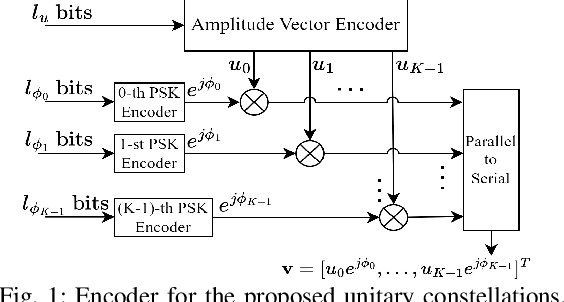

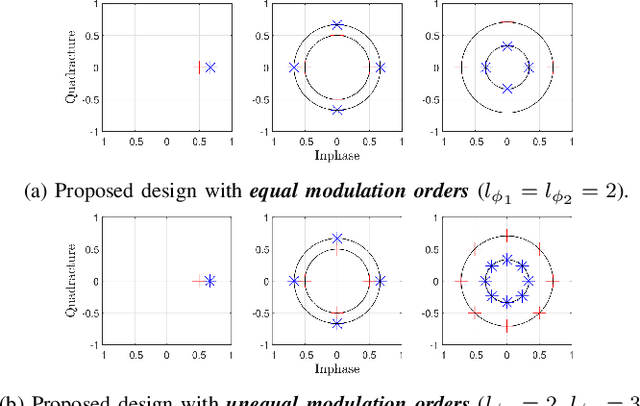
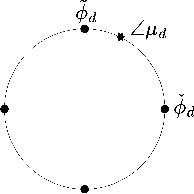
Abstract:In this paper, we propose a novel multi-symbol unitary constellation structure for non-coherent single-input multiple-output (SIMO) communications over block Rayleigh fading channels. To facilitate the design and the detection of large unitary constellations at reduced complexity, the proposed constellations are constructed as the Cartesian product of independent amplitude and phase-shift-keying (PSK) vectors, and hence, can be iteratively detected. The amplitude vector can be detected by exhaustive search, whose complexity is still sufficiently low in short packet transmissions. For detection of the PSK vector, we adopt a maximum-A-posteriori (MAP) criterion to improve the reliability of the sorted decision-feedback differential detection (sort-DFDD), which results in near-optimal error performance in the case of the same modulation order of the transmit PSK symbols at different time slots. This detector is called MAP-based-reliability-sort-DFDD (MAP-R-sort-DFDD) and has polynomial complexity. For the case of different modulation orders at different time slots, we observe that undetected symbols with lower modulation orders have a significant impact on the detection of PSK symbols with higher modulation orders. We exploit this observation and propose an improved detector called improved-MAP-R-sort-DFDD, which approaches the optimal error performance with polynomial time complexity. Simulation results show the merits of our proposed multi-symbol unitary constellation when compared to competing low-complexity unitary constellations.
Multi-level Design for Multiple-Symbol Non-Coherent Unitary Constellations for Massive SIMO Systems
Nov 17, 2022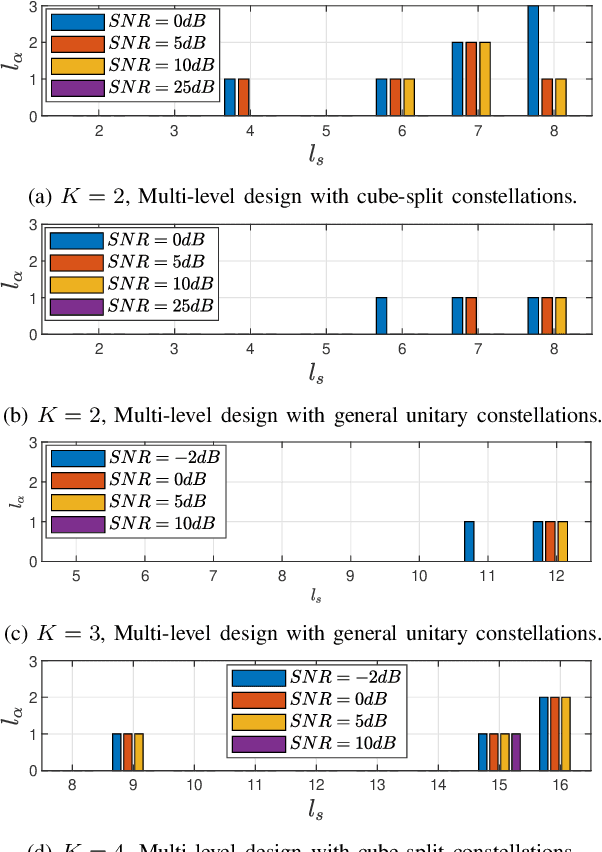
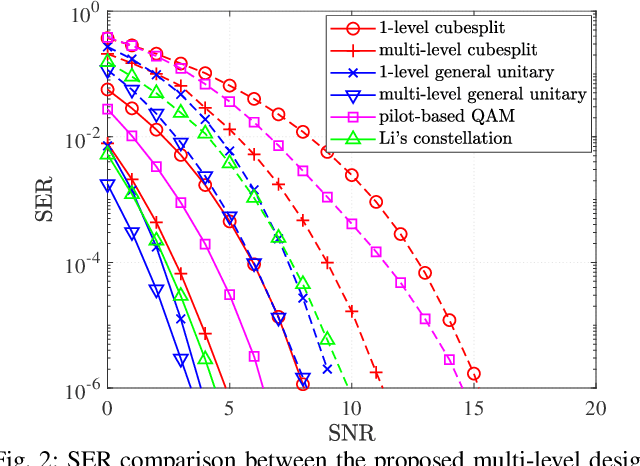
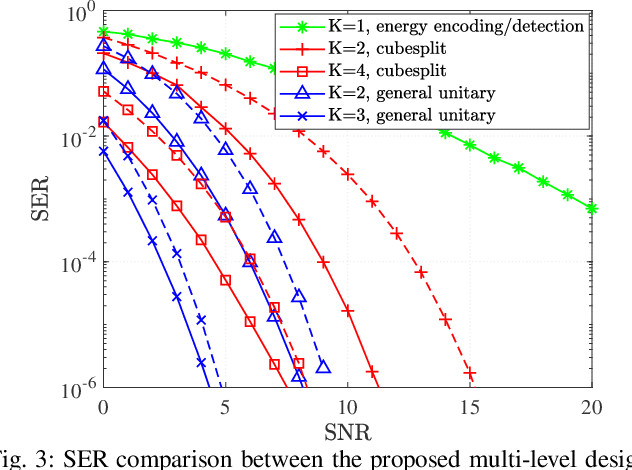
Abstract:This paper investigates non-coherent detection of single-input multiple-output (SIMO) systems over block Rayleigh fading channels. Using the Kullback-Leibler divergence as the design criterion, we formulate a multiple-symbol constellation optimization problem, which turns out to have high computational complexity to construct and detect. We exploit the structure of the formulated problem and decouple it into a unitary constellation design and a multi-level design. The proposed multi-level design has low complexity in both construction and detection. Simulation results show that our multi-level design has better performance than traditional pilot-based schemes and other existing low-complexity multi-level designs.
Energy-Efficient Precoding for Multi-User Visible Light Communication with Confidential Messages
Feb 22, 2021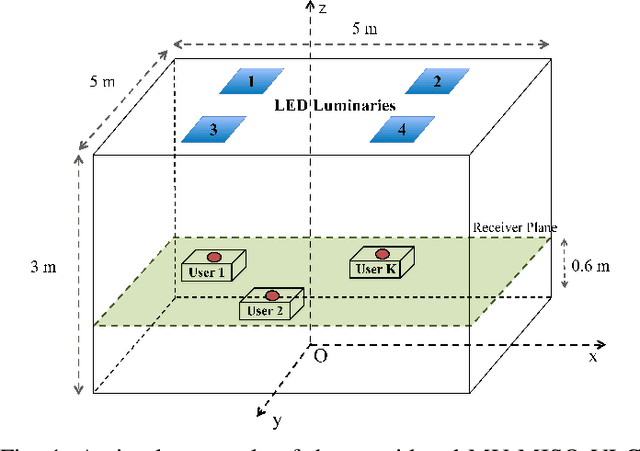
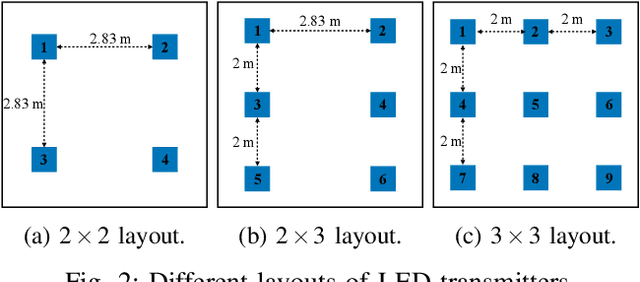
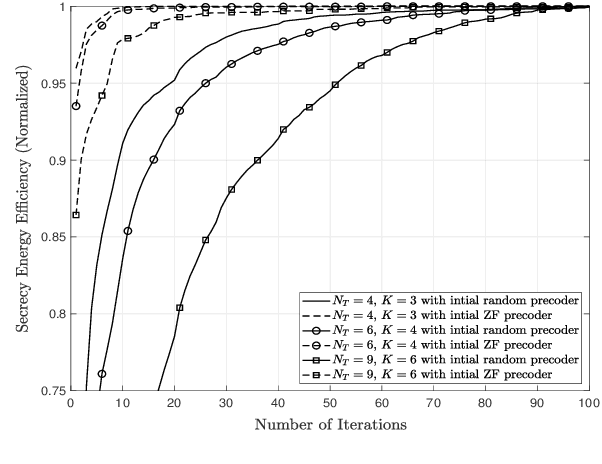
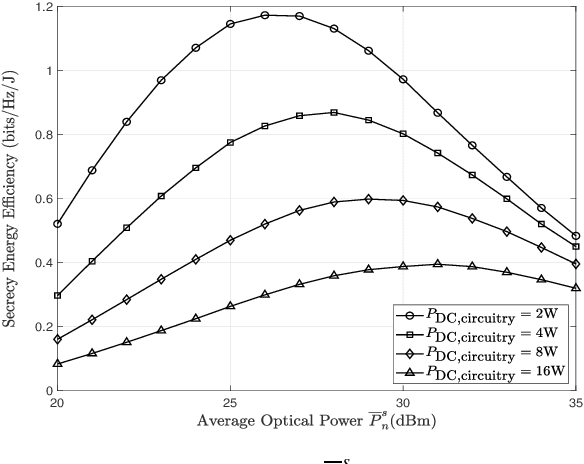
Abstract:In this paper, an energy-efficient precoding scheme is designed for multi-user visible light communication (VLC) systems in the context of physical layer security, where users' messages are kept mutually confidential. The design problem is shown to be non-convex fractional programming, therefore Dinkelbach algorithm and convex-concave procedure (CCCP) based on the first-order Taylor approximation are utilized to tackle the problem. Numerical results are performed to show the convergence behaviors and the performance of the proposed solution for different parameter settings.
 Add to Chrome
Add to Chrome Add to Firefox
Add to Firefox Add to Edge
Add to Edge